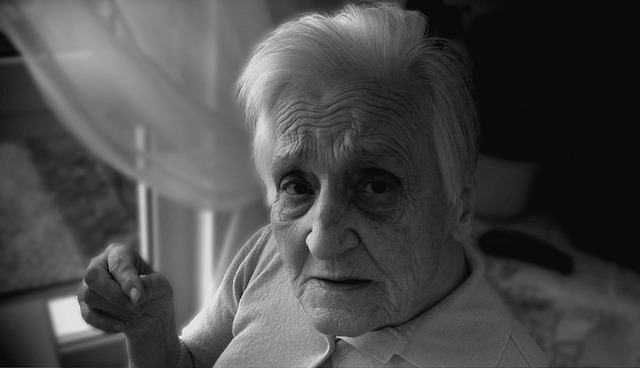Table of Contents
- Preventing Agitation in Dementia Patients
- How can you prepare to take care of agitated dementia patients?
- Why do dementia patients get so anxious and agitated?
- How can you prevent agitation in dementia patients now?
- What are some long-term strategies to prevent dementia-related outbursts?
- What can you do to help dementia patients sleep better at night?
- Responding to Agitation in Dementia Patients
Agitation in dementia describes the excessive verbal and physical activity that sufferers sometimes experience. It often shows up in the middle stages of various dementia types, including Alzheimer’s, Parkinson’s, and Dementia with Lewy bodies. Caregivers taking care of loved ones are most likely familiar with the signs; restlessness, worry, pacing, verbal or physical aggression, crying, and calling out.
These reactions are common because as many as 80 percent of those suffering from dementia experience behavioral problems. Thankfully, there’s much you can do to help. Continue reading below to find out how you can prevent and respond to agitation in dementia patients.
Preventing Agitation in Dementia Patients
How can you prepare to take care of agitated dementia patients?
Dementia impacts thinking, memory, and behavior, and affected loved ones need increasing support as the disease progresses. Understanding the disease’s evolution and how its progression impacts their perceptions can help you manage dementia patients more effectively.
Start by talking to your loved one’s physician and asking for guidance and tips to keep dementia patients calm, make routines like dressing and grooming easier, and provide enjoyable and stimulating activities. Health care providers can also orient you on how to deal with choking, make your home and bathroom safer, and prevent falls.
For more information about dementia, the National Institute on Aging and the Alzheimer’s Association are two credible organizations with books and resources to guide and inform you of caregiving tips and safety information.
Caregivers should also strongly consider having seniors with dementia wear identification bracelets. They can be life-saving if they get lost, and can include some or all of the following elements:
- The person’s name
- Medical conditions
- Your address
- An I.C.E number or names and numbers of who to call
- A directive that tells others what to do. E.g., “Dementia Patient. My name is John Smith. I get confused or agitated easily. Please call my children.”
Also, be sure to register dementia patients in the Alzheimer’s Association’s Safe Return Program to make sure loved ones always make their way back to you.
Why do dementia patients get so anxious and agitated?
Preventing episodes of agitation starts with understanding why they’re happening in the first place. Most triggers occur because of physical, emotional, or mental discomforts. These can arise from:
- Changes in routine
- Changes in the environment, such as a new home, travel, or houseguests
- Changes in caregivers
- Misperceived dangers or threats
- Exhaustion from trying to piece together a confusing world.
- Feelings of loss and despair, such as not being able to do the things they used to
- Experiencing discomfort, such as pain, constipation, or soiled diaper or underwear.
- Too many people around them or too much noise
- Side effects from medications
- Being pushed or expected to do things that dementia has made it difficult or impossible to do, such as remembering people or events.
How can you prevent agitation in dementia patients now?
The most significant factor in preventing agitation in dementia patients is to keep their internal and external environment calm. To help them feel at peace, you can:
- Design a serene environment: Soothing rituals can help dementia sufferers relax and feel less anxiety. Removing stressors and triggers can also help. You can try moving them to a quieter environment, letting them get some rest if they’re tired, and giving them more privacy.
- Stick to a routine: Bathing, eating, dressing, and taking medication at the same time every day establishes order in a world that’s confusing for them.
- Give them a comfort object: These security objects help dementia patients in the same way they provide comfort for children and adults. Children often have a blanket that soothes them, or adults may have a lucky clothing item they wear that gives them confidence and reduces anxiety when facing challenges. Comfort objects for dementia patients can also be something beloved from their childhood, such as a teddy bear, or something else they may have positive emotional attachments to—even if they can’t remember why.
- Be aware of their comfort levels: At set intervals, check in with your loved one to make sure they aren’t hungry, thirsty, too hot or cold, or need to use the bathroom. On occasion, see if they have any skin irritations or infections. Also, try being mindful if they seem fearful of misperceived threats or frustrated by not being able to express themselves.
What are some long-term strategies to prevent dementia-related outbursts?
For long-term prevention of agitation and anxiety in seniors with dementia, you can take the following steps:
Step 1: Schedule an appointment with a physician
Medications have side effects and can interact with one another to bring a new set of issues. Review all prescription and non-prescription drugs—including vitamins and supplements, with your loved one’s doctor to make sure that none of them are causing distress.
You can also ask the doctor if current pain management protocols need adjusting. Go through all chronic conditions to ensure they’re well managed. Also, discuss with health care providers if your loved one may have depression, as many seniors with dementia do.
If non-drug-related techniques haven’t worked well to control agitation or screaming episodes, now is also the time to ask about behavioral medications you can experiment with. They can make a drastic difference in your loved one’s quality of life.
Step 2: Look for triggers
Take on the role of a scientific observer and see if you can correlate agitation episodes with specific triggers. Write down when an episode happens, and record what seniors were doing at the time of the incident and up to a few hours before. What activities did they do? What did they eat? Who did they speak to? What did they spend their time looking at? Once you’ve found a trigger, take steps to eliminate, avoid, or reduce them.
Step 3: Create a soothing environment
Part of creating a soothing atmosphere is maintaining a dementia patient’s daily routines because this gives structure and predictability to their day. Also helpful is making everyday living more relaxed by doing things like accepting unusual clothing choices or performing grooming tasks with the person, so they can copy you. Even something as simple as brushing your teeth involves many sequential steps that dementia patients can get lost in.
Other tips for creating a calming environment include decluttering the house, using aromatherapy, and playing mellow music.

What can you do to help dementia patients sleep better at night?
Sleep disturbances are common in dementia patients. Some studies report that as much as 20 percent of Alzheimer’s patients start getting agitated, anxious, and confused at nightfall. Others may become restless or have changes in sleep patterns. Below are some suggestions to help agitated dementia patients have an easier time getting restful sleep.
- Speak to a doctor: Health care physicians should always be your first stop when you have questions regarding medical conditions or are looking for credible, science-backed information. They’ll let you know about helpful prescriptions and over the counter remedies, as well as other things to do at home.
- Keep the lights on: A well-lit home in the evening can make loved ones feel less agitated because they can see and recognize their surroundings.
- Develop a nightly routine: Having a predictable nightly routine cues dementia patients that bedtime is coming. Their body can then prepare as well by lowering cortisol levels and ramping up melatonin production. An equally important part of winding down is avoiding stimulants and stimulating activities after sunset. If your loved one is sensitive to caffeine, consider restricting coffee morning hours.
- Tire them out: People who spend most of the day resting won’t feel tired at night. This can make it difficult to fall and stay asleep. Encouraging more physical activity and discouraging napping can ensure dementia patients are ready for sleep at bedtime.
Responding to Agitation in Dementia Patients
What do you do if you notice early signs of agitation?
Start taking action as soon as you see dementia patients are becoming agitated. Doing nothing can cause agitated behavior to escalate quickly. Your response will vary with the stressor, but here are some ways to de-escalate a situation, according to their feelings.
Disturbed
Dementia patients get agitated for a reason. One of the first checklists to run through is unmet needs. Are they hungry? Tired? Bored or lonely? Do they need to use the bathroom? Could they be in any sort of pain, such as a stomach ache or headache? Are other medical conditions like arthritis flaring up?
Upset or fearful
Try reassuring them that you understand their plight. Let them air out their frustration or concerns to show that you care and understand why they’re angry. If the environment is stressing them, move them to a quieter location.
Restless
Distract them from their thoughts by walking outside and getting some fresh air. If the weather is too cold or it’s raining, have them watch a favorite show or give them a favorite activity to do. You can also try letting them have a favorite snack or object to take their mind off the situation. Be aware that caffeine may play a role. Limit caffeine intake when possible or switch to decaf coffee.
Full of despair
If they allow, try speaking to them in a calming voice as you gently touch their shoulder or hold their hand. You can also read to them a favorite book or play soothing music. Also, even though dementia patients at times may not be able to fully understand or process situations, they may pick up moods and emotions from you. Have you been feeling a sense of despair as well? Are you worried or stressed more than usual?
What are some tips to calm down someone with dementia?
If a dementia patient is moderately agitated, here are some things to do:
Listen
If you’re loved one can express themselves, listen to what they say and try to piece together what they mean. You may find you understand what they mean, and can then quickly remedy the situation.
Do
Find out the root cause of the agitation. Run through the list of reasons why dementia patients get agitated and see which one may be the culprit. If the issue is hunger or needing to use the bathroom, then it’s a simple fix. But what if the agitation results from something less easily identifiable, like a sense of confusion or despair? What can you do?
- Music therapy and aromatherapy: According to the Alzheimer’s Association, music therapy and art can calm seniors down and prompt them to remember happier times. Essential oils like lavender, rose oil, and chamomile are also thought to have calming effects on the body. You can put them in an essential oil diffuser near your loved one.
- Physical touch: Touch can be a simple, yet powerful tool to calm seniors down. A reassuring hand on the back, holding their hands, putting your hand on their knee, all communicates that you care and are there for them. Research shows a quick, five-minute hand massage reduces cortisol levels and promotes relaxation in dementia patients.
- Change your demeanor: As previously mentioned, if you’re stressed or worried, your loved one may be reflecting your mood. If that’s the case, calmly approach them with a positive and open demeanor.
- Maintain routines: Simple changes in routines can throw off a dementia patient’s well-being. If possible, get back on track with the routine.
- Provide a distraction: Engage your loved one in activities they enjoy like painting, dancing, or going for a walk in the park to take their mind off of whatever is distressing them.
Say
Reassuring phrases like, “You’re safe here,” “I will stay until you feel better,” and “I’m sorry that you are upset” can let the person know you’re listening, you’re there for them, and that you sympathize with them.
What if dementia patients are in a great deal of distress?
Up to 90 percent of dementia patients will go on to develop at least one significant behavioral issue. Screaming is common among people with dementia and can be caused by many of the same things that cause agitation. Patients may cry out for help, wail, or cry for extended periods. And because they may not be able to express what’s wrong, they can’t bring themselves to stop. It can be heart-wrenching to watch.
If dementia patients experience a full-blown agitation or anger episode, combine tactics for listening, saying, and doing for a three-pronged approach.
For example, if they come up to you anxiously repeating they want to go home, here’s what you can do:
- Stay calm, speak to them reassuringly, and repeat back what they say; “You want to go home? I’m sorry you want to go home.”
- Grab their hands or put a hand on their back and shoulder—if they are comfortable with it. Look at them to show they have your full attention.
- Take a deep breath in and an exaggerated deep breath out. Dementia patients will automatically want to mimic your behavior, and will take deep breaths in and out themselves. This can help calm them.
- Try to find out what’s wrong by asking yes or no questions; “You’re not ok? Is something wrong? Are you angry?”
- Listen to their responses and be aware of other clues that may indicate what’s bothering them. If they keep grabbing their clothes, for instance, they may be too hot or cold.
- Take action by removing the source of agitation, fear, or anxiety. They may be trying to tell you they’re in pain. Assess whether there’s something physically wrong or if they’re feeling ill. If they’re sick, consider giving them doctor-approved medications or other things that would relieve them of their distress. They may also need to use the bathroom, eat, or sit down and rest. If they seem to have all their needs met, distract them using their favorite pastime or activities they like.
It’s not easy caring for loved ones with dementia
Preventing and responding to agitation in dementia patients can feel overwhelming and stressful. But, you don’t have to go at it alone. Join communities of people who are facing the same challenges to find more resources, ask questions, and receive emotional support from people who thoroughly empathize with your situation. Also, make sure you’re not sacrificing your self-care to take care of your loved one. To be able to help them, you must maintain your personal balance and find time for you. Only by taking care of yourself first can you be in the best position physically, mentally, and emotionally to help others.









